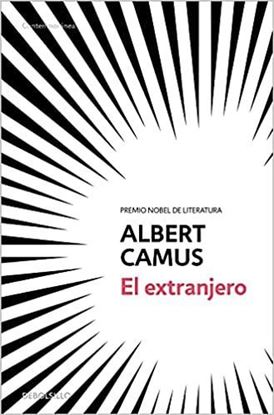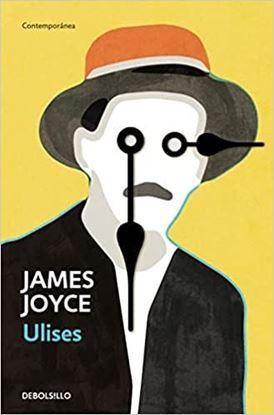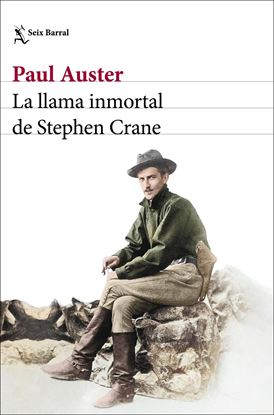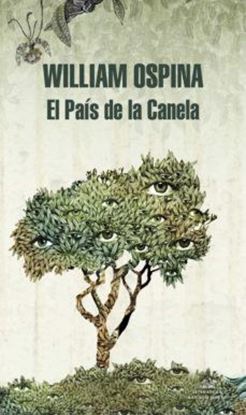

EL EXTRANJERO (BOL)
Publicada originalmente en 1942, El extranjero es la primera novela de Albert Camus y una de sus obras más emblemáticas. Ahora con nueva traducción al español de María Teresa Gallego Urrutia y Amaya García Gallego, este libro capital para la cultura del siglo XX transcurre en Argelia y narra la anodina vida de Meursault, un joven oficinista que vive en perpetua apatía. Cuando recibe la noticia del fallecimiento de su madre, la encaja con la mayor impasibilidad. Obligado a abandonar la capital y viajar para asistir al funeral, Meursault desea que la ceremonia sea breve para regresar a su casa. Esa indiferencia existencial marca sus días, avanzando sin reaccionar a la muerte de su madre, al afecto de su amada y ni tan siquiera a un crimen que cometerá con idéntica desidia, incapaz de ver el alcance moral de sus actos.
Camus retrata magistralmente la indolencia del hombre del siglo XX, un hombre que no encuentra su lugar, extranjero en su propio mundo. Este personaje escéptico y desapasionado que ha abandonado su condición de sujeto autónomo sigue siendo hoy un imprescindible referente literario y existencial.
995
796
EL MITO DE SISIFO (BOL)
El mito de Sísifo es el ensayo fundacional de la filosofía del absurdo, una obra mayúscula que dio a conocer el gran talento de Albert Camus. Publicada en 1942, el mismo año que El extranjero, fue una de las primeras obras que revelaron al público la inteligencia y la sensibilidad del autor.
El título del ensayo hace referencia a un personaje de la mitología griega que enfadó a los dioses por su extraordinaria astucia y fue condenado a empujar perpetuamente una piedra enorme montaña arriba. Al llegar a la cima, la piedra volvía a caer hasta el valle, desde donde Sísifo debía volver a empujarla hasta la cumbre, y así eternamente. Por medio de esta alegoría, Camus discute la cuestión del suicidio y el valor de la vida, presentando a Sísifo como imagen del esfuerzo inútil e incesante del hombre. De este modo plantea la filosofía del absurdo, según la cual nuestras vidas son insignificantes y no tienen más valor que el de lo que creamos. Siendo el mundo tan fútil, pregunta Camus, ¿qué alternativa hay al suicidio?
995
796
ULISES (BOL)
Irreverente, cómica, erudita, monumental, Ulises es una de las novelas cumbre de la literatura moderna. Su trama sigue las andanzas por Dublín de Stephen Dedalus y Leopold y Molly Bloom a lo largo de un día, el 16 de junio de 1904. Pero tras los detalles cotidianos se oculta un trasfondo mitológico que remite a toda la experiencia humana y enriquece la lectura con infinitos significados. Escrito en una brillante variedad de estilos, el libro ha sido objeto de numerosos estudios, ensayos y controversias, una tradición crítica que la presente edición recoge en su estupenda introducción y en su minucioso aparato de notas.
995
796
EL RESPLANDOR (NE 21) (BOL)
Esa es la palabra que Danny había visto en el espejo. Y, aunque no sabía leer, entendió que era un mensaje de horror.
Danny tenía cinco años, y a esa edad poco niños saben que los espejos invierten las imágenes y menos aún saben diferenciar entre realidad y fantasía. Pero Danny tenía pruebas de que sus fantasías relacionadas con el resplandor del espejo acabarían cumpliéndose: REDRUM... MURDER, asesinato.
Pero su padre necesitaba aquel trabajo en el hotel. Danny sabía que su madre pensaba en el divorcio y que su padre se obsesionaba con algo muy malo, tan malo como la muerte y el suicidio. Sí, su padre necesitaba aceptar la propuesta de cuidar de aquel hotel de lujo de más de cien habitaciones, aislado por la nieve durante seis meses. Hasta el deshielo iban a estar solos. ¿Solos?...
900
720
LA LLAMA INMORTAL DE STEPHEN CRANE
En esta apasionante biografía literaria de Stephen Crane (1871-1900), Paul Auster recrea la fascinante vida y la energía creativa del joven escritor, periodista y poeta que escribióLa roja insignia roja del valor en 1895. Crane solo vivió 29 años, pero en ese corto espacio de tiempo cultivó la novela, los cuentos, la poesía y fue un aventurado periodista que cubrió conflictos como la Guerra de Cuba. Conoció a Joseph Conrad y Henry James, que elogiaron su escritura, y con su obra cambió las letras estadounidenses para siempre.
En estas páginas, Auster ofrece, además, una ventana a la vida en Nueva York y Londres a finales del siglo XIX. Los años de Crane son también una época irrepetible en la que el país se prepara para dejar atrás la América del Salvaje Oeste para convertirse en la potencia capitalista que dominaría el mundo durante el siglo XX; una época de prosperidad que, sin embargo, esconde un pasado sin resolver marcado por el comercio de esclavos africanos y la matanza de indios nativos, y que tiene por delante los primeros movimientos sociales y las reivindicaciones sindicales.
1,650
1,320
EL PAIS DE LA CANELA (TRILOGIA NUEVO 2)
Premio Rómulo Gallegos 2009, El País de la Canela es la historia de una expedición fracasada, de la locura que se apoderó de aquellos conquistadores del Nuevo Mundo que deliraban a causa de las promesas de oro y opulencia.
"Fue en las terrazas saqueadas del Quzco donde Gonzalo Pizarro oyó por primera vez hablar del País de la Canelea. Él tenía como todos la esperanza de que hubiera canela en el Nuevo Mundo, y cuando oudo dio a probar a los indios bebidas con canela, para ver si la reconocían. [...] Se que los indios no pudieron haberle descrito todo con exactitud, porque las dificultades de comunicación eran muchas, pero Pizarro adivinó las arboledas rojas de árboles leñosos y perfumados, un país entero con toda la canela del mundo, la comarca más rica que alguien pudiera imaginar."
1,350
1,080














